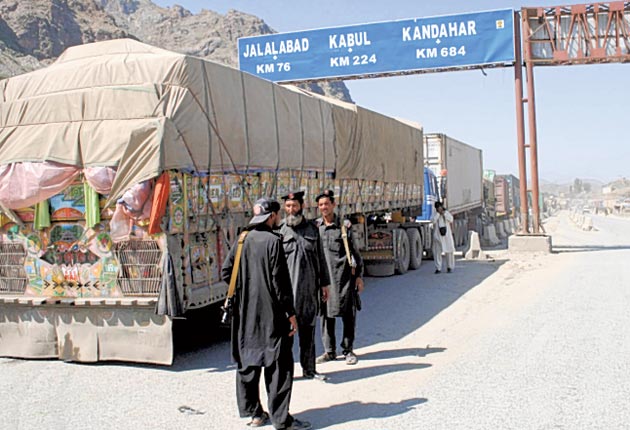Omar Waraich: History shows the Khyber Pass is the key to Afghanistan

From Darius I and Alexander the Great onwards, the Khyber Pass has served as a crucial entry point for successive invaders of south Asia.
Though it is a mere 35km cut, winding through the Hindu Kush mountain range, the opportunities eyed through it have led it to be prized as a strategic trade and military route. Rudyard Kipling described it as "a sword cut through the mountains".
It was the starting point for three Muslim invasions that led to the establishment of the Mughal empire. The British used it in the reverse direction, having invaded Afghanistan and fought three wars there.
During the Afghan Wars, fought by the British between 1839 and 1919, the Khyber Pass served as a key supply route. It was, however, also the scene of numberless skirmishes with local Pashtun tribesmen intent on choking it off.
"Every stone in the Khyber pass," wrote George Molesworth, who fought in the third of these wars, "has been soaked in blood."
Now it serves as a crucial supply route for US and Nato troops in their struggling war effort in Afghanistan. Over three-quarters of all non-lethal items, including water, food, fuel and vehicles, travel along it.
For the Taliban and assorted militants, the route is rich with propaganda opportunities. Seize a convoy, lay a flame, and television images will be relayed across the world, raising fears of growing militancy and the risks to the war effort in Afghanistan.
Now, as the Pakistan government has demonstrated, it can also serve as a demonstration of the country's clout – if only symbolically. The shutdown will not last long. The relationship with the US is too important for that to happen.
But by choking off the route temporarily, in retaliation for the killing of three soldiers, Islamabad has yet again shown how it is key to any success in Afghanistan.
Join our commenting forum
Join thought-provoking conversations, follow other Independent readers and see their replies
Comments
Bookmark popover
Removed from bookmarks